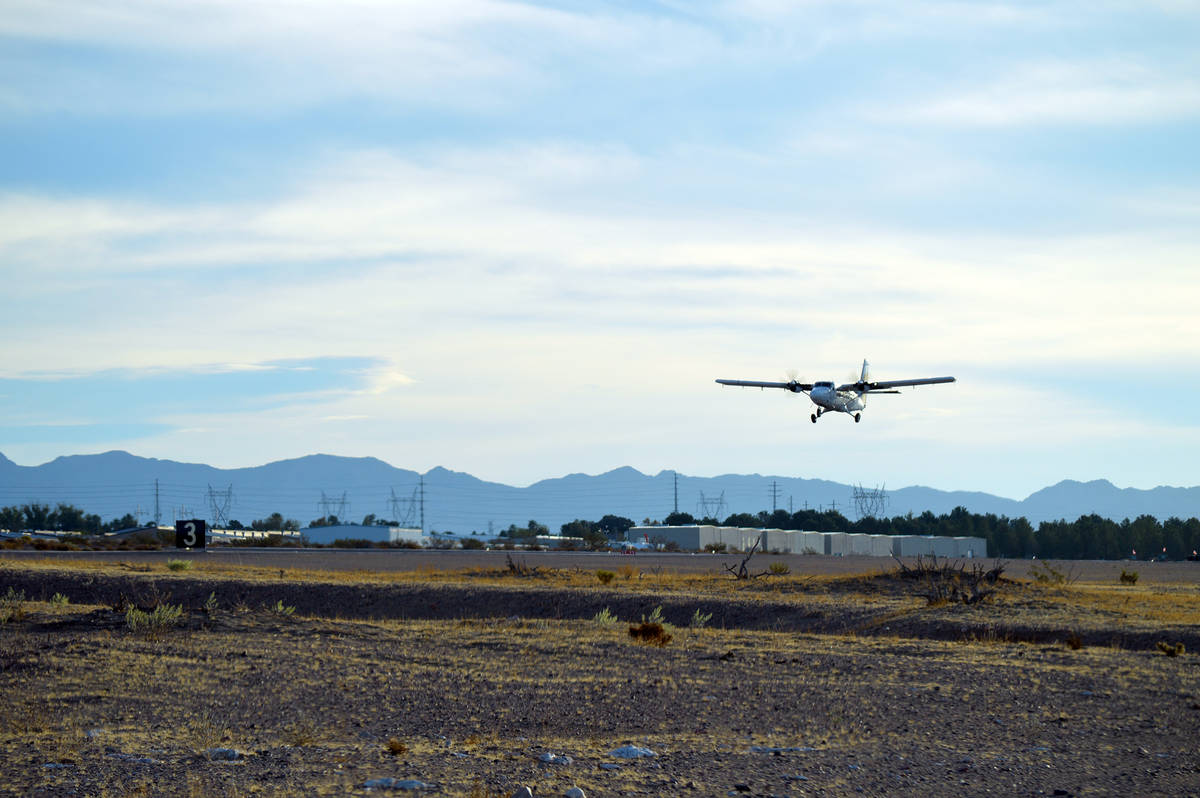Air traffic control towers save lives
I commend the City Council for its interest in the construction of an air traffic control tower at the Boulder City airport, a move that will enhance safety and could even save lives.
The Federal Aviation Administration safety experts have recommended a tower for Boulder City since 2007, with the benefits of a tower far exceeding the cost. The U.S. Senate majority leader fought to include Boulder City on the FAA list of airports eligible for a contract control tower, and he was successful. Airport tenants have also weighed in at public meetings and in conversations with me when I was the airport manager, and many of them supported a control tower.
Aircraft today approach the airport from different directions and pilots must rely on radio chatter and what they can see out the window to estimate where nearby aircraft might be, a concept known as “see and avoid.” But it is a vast sky, and this visual method sounds easier than it is, particularly if the weather is not cooperating.
Yes, there is flight deck technology that can help point out nearby aircraft, but it is not required equipment and most small aircraft do not have it.
I would like to add that I am a commercial, multi-instrument rated pilot who has piloted aircraft around the world and can personally verify the safety a control tower can provide.
Situational awareness on the ground can also present a challenge, as illustrated by an accident at the airport on July 25, 2014, when a fully loaded arriving tour helicopter clipped a loaded tour airplane taxiing for takeoff, narrowly averting what would have been a catastrophic disaster with multiple casualties. According to the National Transportation Safety Board, the airplane crew did not yield the right of way to the landing helicopter, while the helicopter pilot continued their descent without determining if the airplane posed a collision hazard.
Lapses like these have caused similar accidents and it seemed apparent that the FAA’s original observation that an operating control tower at the airport may have well prevented all these close calls.
Safety is the primary concern of air traffic controllers. Among other things, they monitor and direct the movement of aircraft on the ground and in the air, they sequence aircraft for arrival, and they issue takeoff and landing instructions to pilots. They inform pilots about weather, early warning of distressed aircraft, activation of emergency response, area traffic alerts, any ground obstructions (i.e., cranes), runway closures and other critical information.
Why would a “tiny” airport like Boulder City need a control tower? In addition to safety benefits, one answer is because the airport stands out in a rural state like Nevada, a place with relatively few aviation assets. The airport historically records over 200,000 passenger boardings annually, making it is the third busiest commercial airport in the state. In fact, the FAA classifies the Boulder City Municipal Airport as one of only 520 commercial airports in the country. Airport tenants, the commercial passengers and all those who use the airport deserve an enhanced level of safety.
Contrary to popular belief, a control tower does not increase air traffic. Controllers are responsible for regulating the use of the airfield as a means to enhance its safe use for all users regardless of the number.
Another misconception is that the city cannot afford to build or operate the control tower or will have to pay for it out of tax revenues. This is false. Because the airport has been recognized by the FAA as a candidate for the federal contract tower program, over 90 percent of development costs and 100 percent of the labor costs of the controllers operation is paid for through various federal programs.
A tower may be considered a minor inconvenience to some pilots but the safety benefits to not only the flying community but also to the local community far outweigh this inconvenience and these services do not come with a financial burden to the city or the airport tenants. In the final analysis, a control tower at the airport is a solid win for Boulder City and the Boulder City airport users.
Kerry Ahern has more than 20 years of airport management and operations experience, including serving as manager of the Boulder City Municipal Airport from 2008 to 2017. She is currently the senior program officer and synthesis program manager of the Airport Cooperative Research Program for the National Academies of Sciences in Washington, D.C.





